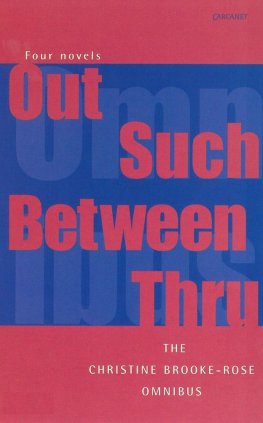PENGUIN

CLASSICS
LEVIATHAN
THOMAS HOBBES, the son of a curate, was born in Malmesbury, Wiltshire, in 1588. He studied at Oxford and spent most of his life employed by the aristocratic Cavendish family, whose younger members he accompanied on European tours. He published his translation of Thucydides History of the Peloponnesian War in 1629, and in the 1630s his interests increasingly concerned themselves with modern science and philosophy. In 1640, in the context of political turmoil in England, Hobbes fled to Paris, where he lived throughout the Civil War. It was here that he began work on his masterpiece, Leviathan. In January 1649, Charles I was executed and England was subsequently declared a Commonwealth; Leviathan was published in 1651, and Hobbes returned home from France several months later. His comprehensive philosophical system was presented in his trilogy, De Corpore (1655), De Homine (1658) and De Cive (1642). In his eighties, Hobbes wrote an autobiography in Latin verse and translated the whole of Homers Odyssey and Iliad. He died at Hardwick Hall in Derbyshire, aged ninety-one.
CHRISTOPHER BROOKE is a lecturer at Cambridge University in the Department of Politics and International Studies, and author of Philosophic Pride: Stoicism and Political Thought from Lipsius to Rousseau (2012).
Thomas Hobbes
LEVIATHAN
With an Introduction and Notes by
CHRISTOPHER BROOKE
PENGUIN CLASSICS
UK | USA | Canada | Ireland | Australia
India | New Zealand | South Africa
Penguin Books is part of the Penguin Random House group of companies whose addresses can be found at global.penguinrandomhouse.com
First published in 1651
This edition first published in Penguin Classics 2017
Introduction and editorial material copyright Christopher Brooke, 2017
All rights reserved
Cover: Detail from Title page of Leviathan by Thomas Hobbes (1651) The British Library Board
ISBN: 978-0-141-39510-4
Part One
OF MAN
Part Two
OF COMMON-WEALTH
Part Three
OF A CHRISTIAN COMMON-WEALTH
Part Four
OF THE KINGDOME OF DARKNESSE
CHAP. I
Of SENSE
Concerning the Thoughts of man, I will consider them first Singly, and afterwards in Trayne, or dependance upon one another. Singly, they are every one a Representation or Apparence, of some quality, or other Accident of a body without us; which is commonly called an Object. Which Object worketh on the Eyes, Eares, and other parts of mans body; and by diversity of working, produceth diversity of Apparences.
The Originall of them all, is that which we call SENSE; (For there is no conception in a mans mind, which hath not at first, totally, or by parts, been begotten upon the organs of Sense.) The rest are derived from that originall.
To know the naturall cause of Sense, is not very necessary to the business now in hand; and I have else-where written of the same at large. Nevertheless, to fill each part of my present method, I will briefly deliver the same in this place.
The cause of Sense, is the Externall Body, or Object, which presseth the organ proper to each Sense, either immediatly, as in the Tast and Touch; or mediately, as in Seeing, Hearing, and Smelling: which pressure, by the mediation of Nerves, and other strings, and membranes of the body, continued inwards to the Brain, and Heart, causeth there a resistance, or counter-pressure, or endeavour of the heart, to deliver it self: which endeavour because Outward, seemeth to be some matter without. And this seeming, or fancy, is that which men call Sense; and consisteth, as to the Eye, in a Light, or Colour figured; To the Eare, in a Sound; To the Nostrill, in an Odour; To the Tongue and Palat, in a Savour; And to the rest of the body, in Heat, Cold, Hardnesse, Softnesse, and such other qualities, as we discern by Feeling. All which qualities called Sensible, are in the object that causeth them, but so many several motions of the matter, by which it presseth our organs diversly. Neither in us that are pressed, are they anything else, but divers motions; (for motion, produceth nothing but motion.) But their apparence to us is Fancy, the same waking, that dreaming. And as pressing, rubbing, or striking the Eye, makes us fancy a light; and pressing the Eare, produceth a dinne; so do the bodies also we see, or hear, produce the same by their strong, though unobserved action. For if those Colours, and Sounds, were in the Bodies, or Objects that cause them, they could not bee [4] severed from them, as by glasses, and in Ecchoes by reflection, wee see they are; where we know the thing we see, is in one place; the apparence, in another. And though at some certain distance, the reall, and very object seem invested with the fancy it begets in us; Yet still the object is one thing, the image or fancy is another. So that Sense in all cases, is nothing els but originall fancy, caused (as I have said) by the pressure, that is, by the motion, of externall things upon our Eyes, Eares, and other organs thereunto ordained.
But the Philosophy-schooles, through all the Universities of Christendome, grounded upon certain Texts of Aristotle, teach another doctrine; and say, For the cause of Vision, that the thing seen, sendeth forth on every side a visible species (in English) a visible shew, apparition, or aspect, or a being seen; the receiving whereof into the Eye, is Seeing. And for the cause of Hearing, that the thing heard, sendeth forth an Audible species, that is, an Audible aspect, or Audible being seen; which entring at the Eare, maketh Hearing. Nay for the cause of Understanding also, they say the thing Understood sendeth forth intelligible species, that is, an intelligible being seen; which comming into the Understanding, makes us Understand. I say not this, as disapproving the use of Universities: but because I am to speak hereafter of their office in a Common-wealth, I must let you see on all occasions by the way, what things would be amended in them; amongst which the frequency of insignificant Speech is one.













 CLASSICS
CLASSICS

